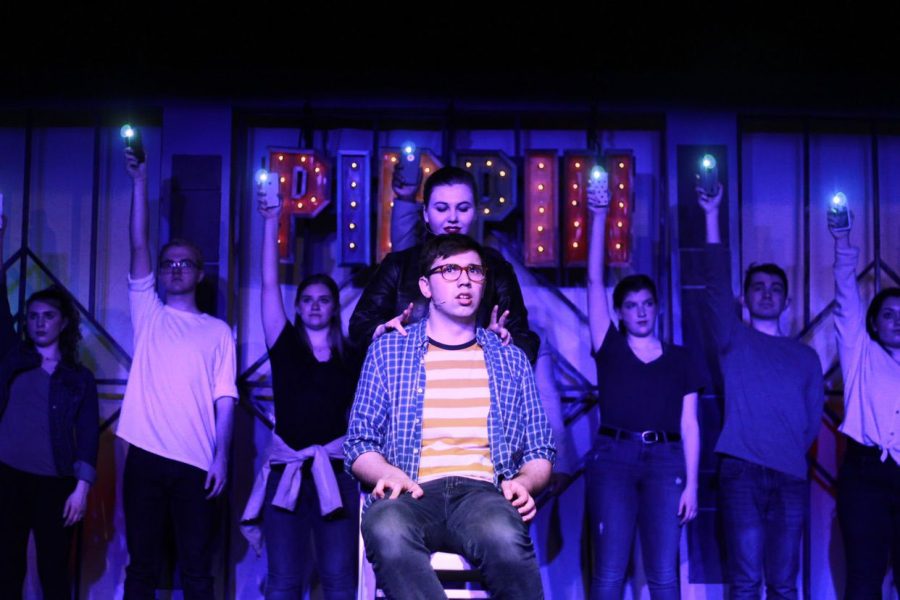VSMT Takes Over St. Mary’s Theatre With ‘Pippin’
March 19, 2019
As someone that had no prior knowledge of “Pippin,” or of many musicals for that matter, I had no idea what I was walking into when I was seated for the Villanova Student Musical Theatre’s production of “Pippin.” Aware it was a successful Broadway musical, my knowledge of the production essentially stopped with that commonly-known fact.
However, as the minutes ticked by in the theatre, and I became witness to the spiritual and emotional journey of Pippin in his father King Charlemagne’s kingdom, I came to see the profundity of the musical and why it has been able to succeed ever since its first production in 1972.
Pippin is a young prince searching for the extraordinary in life, having determined that it is the sensational in life that helps one attain glory and reach the self-fulfillment he desires. However, as he soon comes to find through his personal experiences, his self-fulfillment is more nuanced than he anticipated. This sets off his journey to discover what his life truly means.
Part of what makes “Pippin” remarkable is its ability to convey what seems to be uniquely part of the human condition. Pippin reiterates over and over again the emptiness he feels, the lack of purpose in his life as he searches for the extraordinary to bring him meaning. This emptiness is something all humans have felt or will feel at some point, and it’s quite raw and unnerving to see the human condition excavated on stage as the production does.
However, it’s quite necessary to do so, and the production’s unflinchingness in the face of such humanity works to its benefit. “Pippin” never hesitates to strike its audience in the gut, and while being heavy-handed does not always work when conveying a blunt message humans tend to tiptoe around, brutal honesty is the best way to elicit a reaction and response.
“Pippin,” as such, never falters in achieving its own goal, finding its own self-fulfillment as a production. Mirroring the titular character’s journey, both Pippin and “Pippin” come to see that self-fulfillment is an individualistic idea and that the ordinary can ultimately be just as fulfilling as the extraordinary.
The conclusion of Pippin’s story within the musical is ordinary, yet extraordinary, considering the revolutionary mindset the young prince comes to take towards his self-fulfillment and the ideas of glory within society. In a society where we care so much about how others respect and view us, to be content shunning the extraordinary of the public spotlight for the ordinary, mundane human life is an extraordinary act masked by the seemingly simple nature of the decision.
“Pippin” is an incredible paradox of a production as such. It mixes both the ordinary with the extraordinary, intimate and tender songs with bombastic and showy musical numbers. However, it’s these ordinary roots that really drive the production and its own journey to self-fulfillment just as in the life of the titular character. Perhaps explaining why the story of “Pippin” is still relevant today and has achieved the glory it so deliberately shied away from aiming for in its quest for self-fulfillment.











